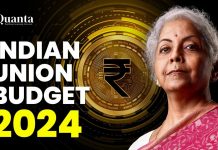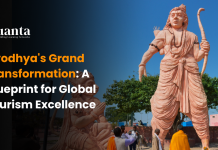The Chinese Government sees Taiwan as a breakaway province that will eventually be part of the country again.
While some Taiwanese think this might happen in the future, others now feel that they
already effectively have a separate nation whether or not independence is ever officially
declared.
History
The first known settlers in Taiwan are Austronesian tribal people thought to have come from modern day southern China. After a brief spell as a Dutch colony (1624-1661) Taiwan was administered by China’s Qing dynasty from 1683 to 1895.
From the 17th Century, significant numbers of migrants started arriving from China, often fleeing turmoil or hardship. Most were Hoklo Chinese from Fujian (Fukien)
province or Hakka Chinese, largely from Guangdong. The descendants of these two migrations now make up by far the largest population group.
In 1895, following Japan’s victory in the First Sino-Japanese War, the Qing government had to cede Taiwan to Japan. After World War Two, the Republic of China – one of the victors – began ruling Taiwan with the consent of its allies the US and UK, after Japan surrendered and relinquished control of territory it had taken from China.
However in the next few years, a civil war broke out in China and the leader at the time Chiang Kai-shek’s troops were beaten back by the Communist armies under Mao Zedong.
Chiang and the remnants of his Kuomintang (KMT) government fled to Taiwan in 1949. This group, referred to as Mainland Chinese and then making up 1.5m people, dominated Taiwan’s politics for many years, even though they only account for 14% of the population.
Having inherited an effective dictatorship, facing resistance from local people resentful
of authoritarian rule, and under pressure from a growing democracy movement,
Chiang’s son, Chiang Ching-kuo, began allowing a process of democratisation, which
eventually led to the 2000 election of the island’s first non-KMT president, Chen
Shui-bian.
How do things stand now?
Relations between China and Taiwan started improving in the 1980s. China put forward a formula, known as “one country, two systems“, under which Taiwan would be given significant autonomy if it accepted Chinese reunification.
This system was established in Hong Kong to be used as something of a showcase to entice Taiwanese people back to the mainland.
In 1991, things got better when Taiwan proclaimed the war with the People’s Republic of China on the mainland to be over.
Beijing became alarmed in 2000, when Taiwan elected as president Chen Shui-bian, who had openly backed “independence”.(remember, the deal was only about autonomy, and independence was never on the cards).
Mr Chen was re-elected in 2004, prompting China to pass a so-called anti-secession law in 2005, stating China’s right to use “non-peaceful means” against Taiwan if it tried to “secede” from China.
In elections in January 2016, Tsai Ing-wen defeated Kuomintang party candidate Eric
Chu. She leads the Democratic Progressive Party (DPP), which leans towards eventual
official independence from China. (the DPP was never in power earlier. They were
always a group of “fringe elements” who wanted complete democracy and
independence. Their rise to power is why China is adopting this aggressive
stance now)
(The earlier party, KMT wanted reunification, while DPP wants full independence)
After Donald Trump won the 2016 US election, she spoke to the president-elect in a
phone call, in what was a break with US policy set in 1979 when formal relations were
cut.
Despite the lack of formal relations, the US has an agreement to supply Taiwan with defensive weapons(this was huuuuuge, Trump, because of the trade war with China, was the most Pro Taiwan president ever) and has stressed any attack by China would cause “grave concern”.
Throughout 2018, China stepped up pressure on international companies forcing them
to list Taiwan as a part of China on their websites and threatening to block them for
doing business in China if they failed to comply. (PS: India, and most other countries
had to follow this)
In 2020, Ms Tsai won a second term(Democracy rocks)
By that time, Hong Kong had seen months of unrest with protesters demonstrating against the mainland’s increasing influence – a trend that had many in Taiwan worried Beijing would next set its eyes on Taiwan.
Later that year, China’s implementation of a national security law in Hong Kong was
seen by many as a yet another sign that Beijing was becoming significantly more
assertive in the region.( Basically, the national security law in HK meant that Chinese
law would apply in HK, and any protestor could be detained any time, and more such
draconian shit)
In the meantime, the US has been intensifying its outreach to Taiwan, reassuring Taipei of its continued support,
In September, Washington sent its highest-ranking politician to hold meetings on the island for decades.(vvvv crucial, historic shit)
Beijing strongly criticised the meeting, warning “not to send any wrong signals to ‘Taiwan independence’ elements to avoid severe damage to China-US relations”.
During the controversial visit, China conducted a live-fire military exercise in the waterway that separates the island from the mainland. President Joe Biden’s administration has said its commitment to Taiwan is “rock
solid”.
In the first few days of Mr Biden’s presidency, Taiwan reported a “large incursion” by Chinese warplanes over two days.
Taiwan’s air force moved to warn away the Chinese aircraft and deployed air defence missile systems to monitor the planes.
Analysts said China was testing Mr Biden’s support for Taiwan.
Pentagon spokesman John Kirby responded by saying: “We have obligations to assist Taiwan with their self-defenses and I think you’re going to see that continue.”
Soooooo WHAT IS TAIWAN?
There is disagreement and confusion about what Taiwan is, and even what it should be
called.
China regards Taiwan as a breakaway province which it has vowed to retake, by force if necessary. But Taiwan’s leaders say it is clearly much more than a province, arguing that it is a sovereign state.
It has its own constitution, democratically-elected leaders, and about 300,000 active troops in its armed forces.
Important
Chiang Kai-shek’s Republic of China (ROC) government, which fled the mainland to Taiwan in 1949, at first claimed to represent the whole of China, which it
intended to re-occupy.
It held China’s seat on the United Nations Security Council and was recognized by many Western nations as the only Chinese government.
But in 1971, the UN switched diplomatic recognition to Beijing and the ROC government was forced out.
Since then the number of countries that recognize the ROC government diplomatically has fallen drastically to about 15.
Given the huge divide between these two positions, most other countries seem
happy to accept the current ambiguity, whereby Taiwan has virtually all of the
characteristics of an independent state, even if its legal status remains unclear.
(In the Olympic Games, Taiwanese athletes play under the flag of “Chinese
Taipei”)
It is basically a geopolitical absurdity.
CONCLUSION
While political progress has been slow, links between the two peoples and economies
have grown sharply. Taiwanese companies have invested about $60bn (£40bn) in
China, and up to one million Taiwanese now live there, many running Taiwanese
factories.
Some Taiwanese worry their economy is now dependent on China. Others point out that closer business ties makes Chinese military action less likely, because of the cost to China’s own economy.
Officially, the Democratic Progressive Party (DPP) still favors eventual formal independence for Taiwan, while the KMT favors eventual re-unification.
Opinion polls show only a small minority of Taiwanese support pursuing one or the
other at the moment, with most preferring to stick with the current middle ground.
Yet more and more people say they feel Taiwanese rather than Chinese. Support for the DPP increased at the January 2016 election.
This was partly because of dissatisfaction with the KMT’s handling of economic matters, from the wealth gap to high housing prices, and partly because of worries that Mr Ma’s administration was making Taiwan too dependent on Beijing.
MY THOUGHTS
Soooo basically, China will only have a more aggressive stance in the near future, because they have to pander to their nationalist audience too. Xi’s initial mishandling of the pandemic, had caused some rumblings within China, and that is why he has gone on an expansionist tirade since then. Also, the Chinese government’s official stand is still that Taiwan is China. You see, China’s nationalism is based a lot on land, so to divert his audience, whenever he falters elsewhere, Xi will do all this shit.
Plus, he hates democracy so………
But the problem is China is fkn powerful economically and so no one really recognizes
Taiwan as an independent entity. Except for the US, no one even really talks about
Taiwan a lot(that too because of the trade war with China and shit, let’s see what Biden
does).
Biden is a pro democracy person but the US economy also depends a lot on trade with China, and he unlike Trump(who wanted to position himself as a nationalist who will take China on), will not be that hostile to China.
But it’ll be interesting to see the stance he adopts if China cracks down on Taiwan (democracy vs economy, ethical dilemma)
To structure your CAT online preparation in an efficient way consider joining iQuanta which is a top online cat coaching institute and being a part of the iQuanta CAT 22 Course.
You can also check out and be a part of their Facebook group for peer learning, doubt solving and free material.
For 24*7 doubts-solving, FREE guidance and counselling and peer to peer learning, join the CAT preparation Fb group below:






